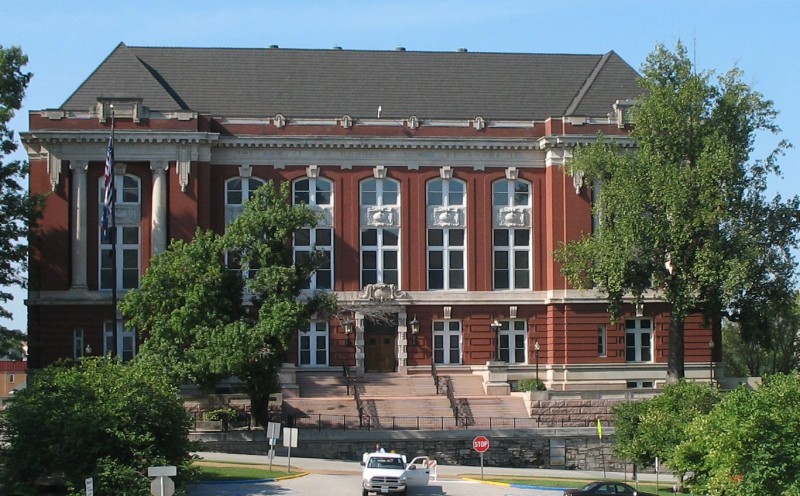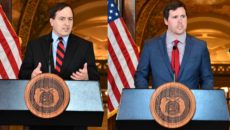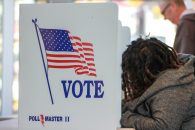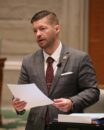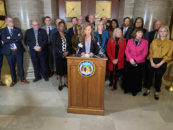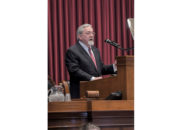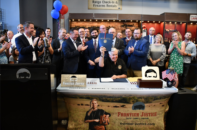JEFFERSON CITY, Mo. — The battle over the use of public funds to support or oppose ballot measures was before the Missouri Supreme Court Tuesday as both sides presented arguments.
The question is whether a section in the Missouri Constitution restricting the use of public funds to support or oppose political candidates or ballot measures — with violators facing possible Class 4 election offense charges, fines up to $2,500, and jail time — violates municipal officials’ right to free speech based on content. The lawsuit was brought by officials from Maryland Heights and other communities in 2019.
In April, Cole County Judge Cotton Walker sided with the local officials’ argument that the statute, which specifically targets “officers, employees, and agents” of a subdivision, violated the elected officials’ right to free speech, a focal point of Tuesday’s debate. He also said the language was overly vague in terms of what language defied the statutes.
The state appealed the case to the Missouri Supreme Court due to its focus on statutory language.
Michael Talent with the Attorney General’s Office asked the high court to reverse the Cole County Circuit Court’s verdict. Talent said the state had full authority to prohibit the use of public funds to weigh in on ballot measures, arguing governmental speech is not covered under the First Amendment.
“Government cannot speak except through its officials, and what those officials speak, they are speaking for that government. That’s what I think is worth noting, and officials don’t disagree with that,” Talent said. “They say, ‘This law goes further and applies to private speech, and that’s unconstitutional.’ Your honor, that’s not the case.”
Paul Martin, who represented the plaintiffs Tuesday, argued the law covered the use of public funds for political advocacy rather than general speech. He said communities often distributed educational materials to inform voters about issues on the ballot rather than persuade them how to vote.
He also said officials may discuss election matters at publicly-funded local events geared toward other subjects, an action the local officials and Martin said should be allowed.
“The state needs to establish a compelling interest, and the essence of the state’s case isn’t speech as regulated by the statute, it is the funding by the public of that speech,” Martin said. “The speech part is integral to the funding part, and without a speech that advocates, the funding is irrelevant.”
Both sides noted officials were allowed to discuss ballot measures on their own time or through personal social media channels.
The 2019 legal challenge sought to clarify what speech is covered under the statute and assert that officials’ First and 14th amendment rights had been violated. Walker’s decision dismissed the declaration motion as moot.
The Missouri Legislature passed a bill this session restricting school districts from using public funds for political action, a response to a separate lawsuit against the St. Joseph Public School District for its support of 2017’s right to work referendum.
While justices questioned the impact of the new statute on Maryland Heights’ case, Martin said it didn’t affect the language in question.
The Supreme Court has not set a deadline for a decision on the case.

Cameron Gerber studied journalism at Lincoln University. Prior to Lincoln, he earned an associate’s degree from State Fair Community College. Cameron is a native of Eldon, Missouri.
Contact Cameron at cameron@themissouritimes.com.

